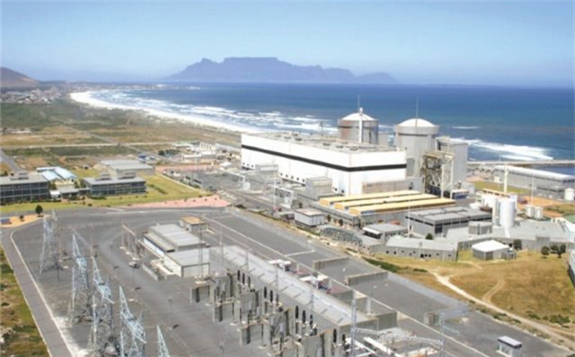South Africa’s nuclear professional associations have issued a general call to reboot the local nuclear industry.

In a statement released to the media NECSA scientist Thomas Sibiya said the associations had gathered to demonstrate their support for the nuclear industry at Pretoria-Sunnyside Jubilee Park on Saturday. The demonstration was in support of nuclear technology and nuclear industries expansion.
Six professional associations – Nuclear Industry Association of South Africa (NIASA); South African Young Nuclear Professionals Society (SAYNPS); Women in Nuclear of South Africa (WINSA); Southern African Radiation Protection Association (SARPA); The South African Vest Group; and Nehawu Nuclear Energy Workers – highlighted the following in the belief that nuclear energy could solve the country’s load shedding woes.
Sibiya said the demonstration was held in the hope of highlighting the idea that unlocking the stagnation of growth in nuclear industries over the past three decades could provide clean abundant energy, sustainable employment and subsequent invigoration of the economy.
Koeberg Nuclear Power Station has been safely operating for more than 30 years, providing reliable electricity to the Western Cape without any fatal incidents. Thus, the associations believe KNPW should be provided with a licence to operate beyond 2024 to 2044.
Nuclear power does not emit harmful pollutants such as nitrogen oxides and sulphur oxides, making it a clean, reliable baseload form of electricity energy.
Therefore, the associations call on the country to construct in affordable phases and at a manageable pace, a 2,000MW light water reactor for nuclear power and pursue the construction of 500MW small modular reactors (SMRs). They believe these SMRs could replace the inland coal-fired power stations which will reach the end of their operational lifespans between 2025 and 2030.
They also want to see the construction of a multipurpose research reaction (AKA SAFARI-2) to continue the value chain supply of radiopharmaceutical isotopes for medical use.
The associations called for further development of the National Radioactive Waste Disposal Institute for longer-term storage of high-level radioactive waste.
South Africa’s history of nuclear technology
He pointed out South Africa has hit several scientific milestones since it started developing nuclear technology in the early 1940s.
The South African Atomic Energy Board was the forerunner of the current Atomic Energy Corporation which is today known as the South African Nuclear Energy Corporation (NECSA).
NECSA manages the South African Fundamental Atomic Research Installation, known as SAFARI-1. This water tank pool high neutron flux research reactor sustained a fission chain reaction on 18 March 1965 and has since then played a significant role in the supply chain of radiopharmaceuticals for medical application. It is the only research reactor in the Southern African Development Community region. SAFARI-1 has for more than 50 years created medical isotopes for local and international communities and solved industrial problems through its research facilities.
Koeberg Nuclear Power Station is made up of two units of pressurised water reactors and is the only commercial nuclear power station in Africa. Since the mid-1980s it has supplied base-load electricity to South Africa. The National Radioactive Waste Disposal Institute began operating in 1986 when KNPS started disposing of low and intermediate-level nuclear waste.
Sibiya pointed out all of these nuclear industries and facilities operate within a highly regulated environment spearheaded by the National Nuclear Regulator (NNR). The NNR is a well-established regulatory body which provides and maintains effective and efficient nuclear regulatory framework for the protection of people, property and the environment against nuclear damage from ionising radiation.
“It is quite evident from the highlighted points that for more than 30 years there has been serious stagnation of growth in nuclear industries, which is extremely regrettable because challenges such as load shedding are sharply and steeply collapsing the South Africa economy, thereby giving rise to socio-economic challenges.
“This is even more so during this difficult circumstances presented by the COVID-19 virus,” said Sibiya.